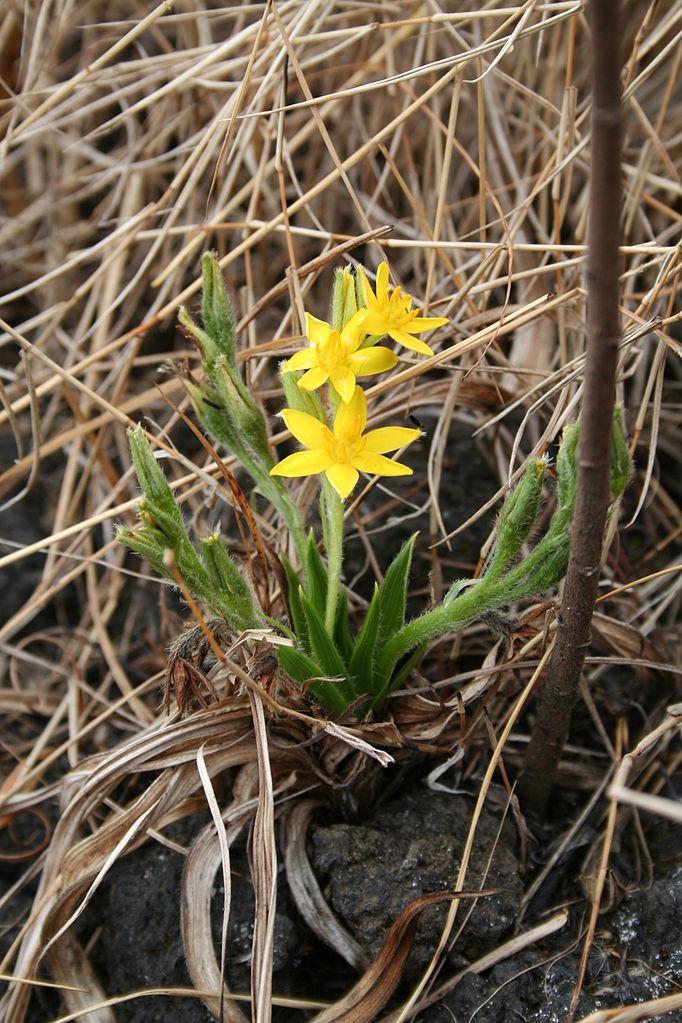
A new paper published by archaeologist Lyn Wadley of the University of the Witwatersrand in Johannesburg and her colleagues in the journal Science presents rare proof of prehistoric humans’ consumption of carbohydrate-rich roasted veggies. The team found evidence in a charcoal pile within a rock shelter that early modern humans collected and cooked starchy plant parts. The remains have been dated to nearly 170,000 years ago.
The team was exploring ashes left behind by ancient cooking fires at South Africa’s Border Cave, which is located in the western Lebombo Mountains. Electron microscope scans determined that the ash came from a small flowering plant known as Hypoxis angustifolia, also known as the Yellow Star flower, which has a distinctive white rhizome. A series of splits found in the rhizomes suggest that the plants were cooked while they were still green and fresh.
The discovery shows that early people were actually healthy in their eating habits. Since the rhizomes were cooked in the cave, rather than in the field, the researchers reasoned they may have been shared with others who shared the cave as a home base. Cooking them would have made them easier to peel and digest. A wooden digging stick that was also discovered in the cave may have been used to dig the plants out of the ground.
According to the paper, this new discovery is “the earliest direct evidence of early humans cooking up rhizomes or any carbohydrate-packed plant.” The oldest previous evidence dated back only 120,000 years. A previous paper described in a 2016 New Scientist article provided some of the first direct evidence of what plants early humans ate, finding no less than 55 different kinds of plants.
